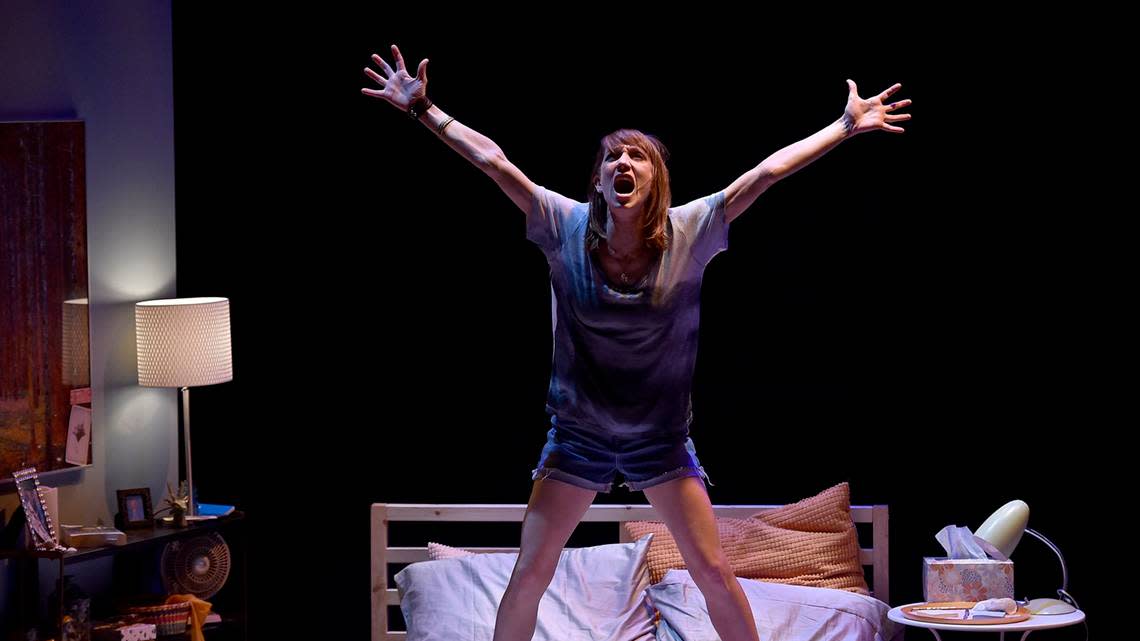Kansas City’s electric live performing arts scene is the social media antidote we need | Opinion
The Kansas City Repertory Theatre’s upcoming 60th season offers an opportunity to celebrate not just the Rep, but also the remarkable variety of live spectacles available all around the metropolitan area. It also provides a chance to think about the cultural — and countercultural — purposes of the performing arts.
The new KC Rep season, which opens Sept. 5 with the popular “Cyrano de Bergerac,” is a time to give thanks that Patricia A. McIlrath founded the company in 1964, originally as the Missouri Repertory Theatre. Her vision and energy guided it until her retirement in 1985, when George Keathley became its innovative artistic director. He worked with James D. Costin, executive director, to move McIlrath’s dream forward. Subsequent leaders — Peter Altman, Eric Rosen, Angela Lee Gieras and now Stuart Carden — have kept the institution fresh and engaging.
Live theater can be found throughout the Kansas City area today. A comprehensive list of what’s available would be extraordinarily long and varied, but here are just a few examples: Starlight Theatre, the Unicorn Theatre, the Black Repertory Theater of Kansas City, the Metropolitan Ensemble Theatre and the Lewis and Shirley White Theatre at the Jewish Community Center of Greater Kansas City. All of them feature local and national talent, as does the Lyric Opera.
Professional touring shows also delight audiences at several area venues. Local dinner theaters are in the mix, too — Overland Park’s New Theatre Restaurant is one of the most successful and longest-lived in the country. Count in performances by the Kansas City Ballet and other dance companies, to say nothing of live productions at area colleges, universities and high schools. An impressive number of community theater groups retrofit former cinemas, churches and gymnasiums into stages to showcase the impressive artistry of our neighbors who spend their workdays as accountants, shopkeepers and construction workers.
Beyond that, in programs by the Kansas City Symphony Orchestra, conductors and guest soloists, magic in their dynamism, often turn Helzberg Hall at the Kauffman Center for the Performing Arts into a terrific live theater site. The art collective Quixotic stretches the boundaries of dance, acrobatics and technology to create multimedia presentations that defy ready classification.
Those and other local troupes raise the question not only of what role live theater plays here, but what role it should play in a culture in which so many people seem surgically attached to cellphones and other streaming devices.
The longtime professional actor training group Acting Studio Chicago answers the purpose question this way: “Live theater helps to promote social discourse, dialogue and potential social change. Theater is a cultural phenomenon that demands that society examines itself in the mirror. We can study societal problems and attempt to find solutions. Coming together as a community to listen to opposing points of view is necessary.”

The internet ‘metaverse’ is about selling products
Social discourse certainly can and does happen because of theater. But live performance offers something beyond that. It can take us out of the incessant shows that the internet and the broader so-called “metaverse” create about us — shows in which we’re both the subject and the object, both the consumer and the product. Live theater reminds us that social media and shallow virtual entertainment venues are meant mostly to distract us or sell us something, not to complicate our thinking.
As Megan Garber, a staff writer for The Atlantic, wrote recently about social media and the metaverse: “In the future … we will surrender ourselves to our entertainment. We will become so distracted and dazed by our fictions that we’ll lose our sense of what is real. We will make our escapes so comprehensive that we cannot free ourselves from them. The result will be a populace that forgets how to think, how to empathize with one another, even how to govern and be governed. That future has already arrived.”
Live theater, of course, is itself entertainment, but it’s far more than an escape from a virtual reality that stars us. It is, in fact, an antidote to that buzzing universe of electronic distraction. At their best, theater companies like the KC Rep challenge our assumptions about life and its purposes. They help us see what we couldn’t yet see when we entered the theater. They offer not mind-numbing, soul-killing noise and movement but, rather, thoughtful analysis and insight into the eternal questions we must try to answer to know ourselves and others.
So as often as possible, let’s ditch our smartphones and allow live theater to capture and challenge our hearts and minds.

